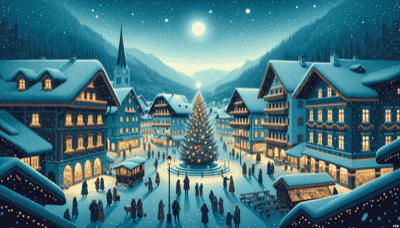We're here to help you keep count of the days to or since a date. Just click the button below and enter your chosen date to get started. Also choose the suggested days or search for a special day above #countingthedays

History and Traditions:
New Year's Eve, known as "Nochevieja" or "Año Nuevo," is celebrated in Honduras with a mix of local traditions and customs influenced by Spanish culture due to the country's colonial history. It is a time for family gatherings, feasts, and reflecting on the year that has passed while looking forward to the future.
Celebrations:
Family Gatherings: Much like other countries around the world, Hondurans often spend New Year's Eve with family and friends. Large meals are common, with traditional dishes such as tamales, roast pork, and rellenitos de platano (stuffed plantains).
Fireworks: At midnight, the skies light up with fireworks displays. This is a popular way to ring in the new year across many cities and towns in Honduras.
12 Grapes: Adopting a tradition from Spain, some Hondurans eat 12 grapes at midnight, one for each strike of the clock, symbolizing their hopes for each month of the new year.
Año Viejo Effigies: In some communities, effigies representing the old year ("Año Viejo") are created and then burned at midnight to symbolize letting go of the past.
Church Services: Religious individuals may attend church services that run late into the night on December 31st to give thanks and pray for blessings in the coming year.
What People Do:
People engage in various activities ranging from attending parties at clubs or public venues to watching countdowns on television. Music and dancing are integral parts of celebrations. Additionally, it is not uncommon for people to make resolutions or set goals they wish to achieve in the new year. Many also take part in charitable activities during this time as an act of goodwill.